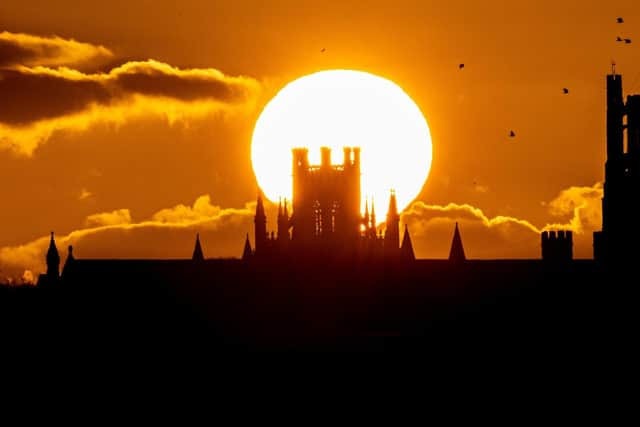Peter Lynas of Evangelical Alliance suggests what 2021 Census for England means for Northern Ireland church
and live on Freeview channel 276
Peter Lynas, UK director of the Evangelical Alliance, was speaking after the 2021 census figures for England and Wales revealed the average age of people identifying as Christian is now above 50, while a majority of most young adults say they have no religion.
Nearly three in 10 who identify as Christian are 65 and over – up from just over two in 10 a decade ago.
Advertisement
Hide AdAdvertisement
Hide AdThe median age – or exact midpoint – of people identifying as Christian was 51 at the 2021 census, up from 45 in 2011, according to new analysis from the Office for National Statistics (ONS).


This is the oldest average age among all main religious groups.
The youngest average age is 27 years, for people identifying as Muslim, up from 25 in 2011.
Most of the other main groups have seen an increase, with Hindu up from 32 years to 37 years, Sikh from 32 to 37 and Buddhist from 37 to 43, while the average Jewish age is unchanged at 41 years.
Advertisement
Hide AdAdvertisement
Hide AdThe proportion Christians aged 21-25 fell from 5.1% to 3.9%.
Peter Lynas said NI often follows similar trends to England and Wales and the pandemic may accelerate matters.
“While we may see less young people ticking the Christian box, those that do are likely to be more passionate and keen to share their faith with others,” he said.
“So, while we may see a decline in cultural Christianity in Northern Ireland, the number of practising Christians is likely to stay pretty constant.
Advertisement
Hide AdAdvertisement
Hide Ad"And in the current chaotic and contested moment, the hope found in Jesus and the community offered by the church, could lead to real growth. Trends are there to be broken, not followed religiously!”
Northern Ireland political commentator Alex Kane, who identifies as an atheist, said the figures do not surprise him.
"I think there has been a drift to atheism/agnosticism from the late 1960s during the great era of neo-liberal thinking," he said.
He added that people now "don't want lifestyle choices determined by others, particularly those who are not elected".
Advertisement
Hide AdAdvertisement
Hide AdNI has been slower to move towards a non-Christian/non-religious outlook, he believes, "but that is clearly the direction of travel and in the great scheme of things that is no bad thing".
Boyd Sleator, Coordinator for Northern Ireland Humanists, said: "We are yet to get the same breakdown from our own Census of the Northern Ireland population by age and religion.
"But the headline figures show that Northern Ireland is going in the same direction as the rest of the UK - it is becoming less religious.
"This has urgent implications for our education system, which is entirely Christian. The political parties should come together to create a single, inclusive education system as soon as possible."
Advertisement
Hide AdAdvertisement
Hide AdA spokesperson for the Presbyterian Church in Ireland said the statistics show a changing social landscape, and the reasons for this are many and varied.
“It is however interesting to note that figures contained in the 2021 Northern Ireland census, released in September last year, showed that 8 in 10 people locally, still identify with a faith tradition that is overwhelmingly Christian,” he added.